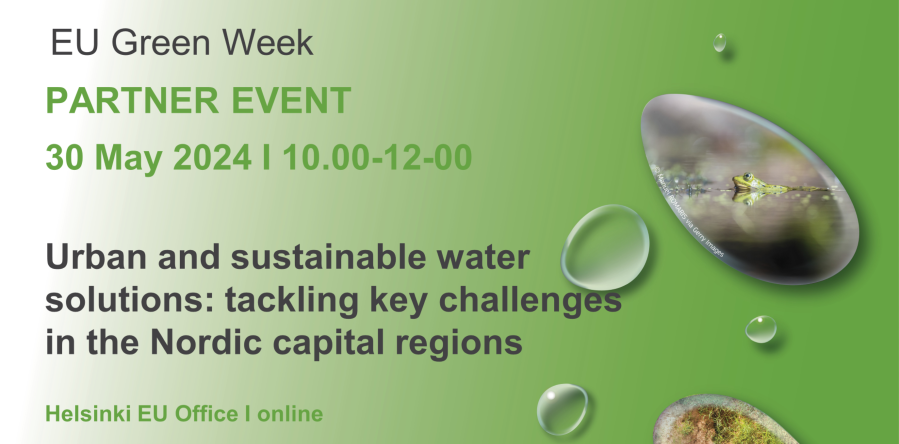
On the 30th of May, as part of the 2024 EU Green Week – Towards a water resilient Europe, the Nordic capital regions of Copenhagen, Helsinki, Oslo, and Stockholm hosted a partner event on urban sustainable water solutions. The purpose of the event was to discuss how to tackle key challenges in sustainable water management through regional perspectives and best practices.
The EU Green Week
The 2024 EU Green Week is part of #WaterWiseEU – a campaign to stimulate an EU-wide conversation around water today and in the future. The purpose of the EU Greek Week partner events is to raise awareness and educate people on the importance of protecting the environment and promote sustainable living practices, focusing on water resilience.
The seminar was hosted together with the Nordic capital regions Copenhagen, Helsinki, Oslo, and Stockholm whom all have significant coastlines, archipelagos, and waterways connected to the sea, making water resilience highly relevant and urgent. The capital regions welcomed keynote speaker Ms. Silvia Bartolini, Head of Unit Marine Environment and Clean Water Services, DG Environment and the moderator Ms. Louise Coffineau, Senior Policy Advisor Environment, Eurocities to the seminar. Other speakers were Ms. Solveig Schytz, Councilor for planning, cultural heritage, climate and environment from Akershus County, Mr. Peter Svärd, Project Director and Ms. Lisa Jacobsson, Deputy Project Director from the floodgate project “The New Slussen” and Mr. John Flyvbjerg, Chief Consultant on soil and water pollution at the Capital Region of Denmark.
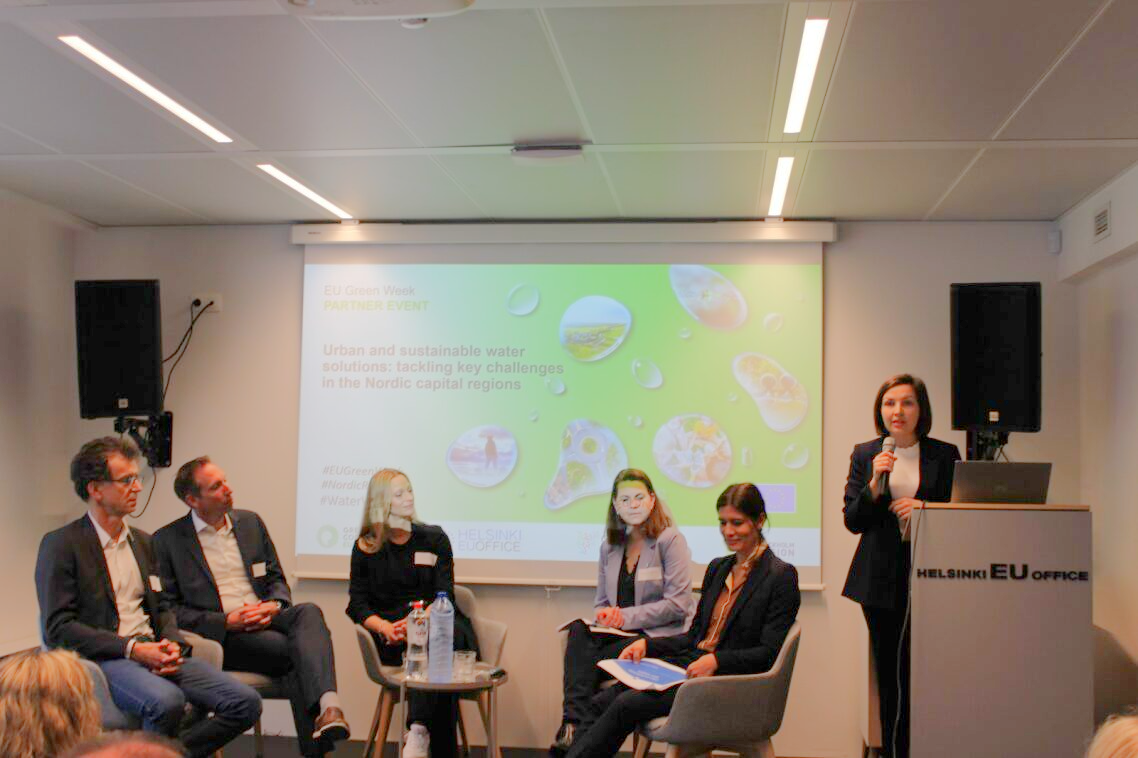
How to tackle key challenges in sustainable water management
Ms. Silvia Bartolini, Head of Unit Marine Environment and Clean Water Services, DG Environment, opened the seminar by pointing out that 78% of EU-citizens want more legislation to assure access to water, according to the latest Eurobarometer survey realised in May. EU-citizens consider pollution and overconsumption of water as the two main national threats linked to water. Furthermore, Ms. Bartolini discussed the link between the European Green Deal and water. Even though a lot has been done by the current European Commission in order to reach a water resilient society by 2050, such as the drinking water directive and water regulation for the agricultural sector, Ms. Bartolini argued that the adaptation of a strategic approach is vital in order to get a water resilient Europe. European cities play a crucial role in reaching this goal.
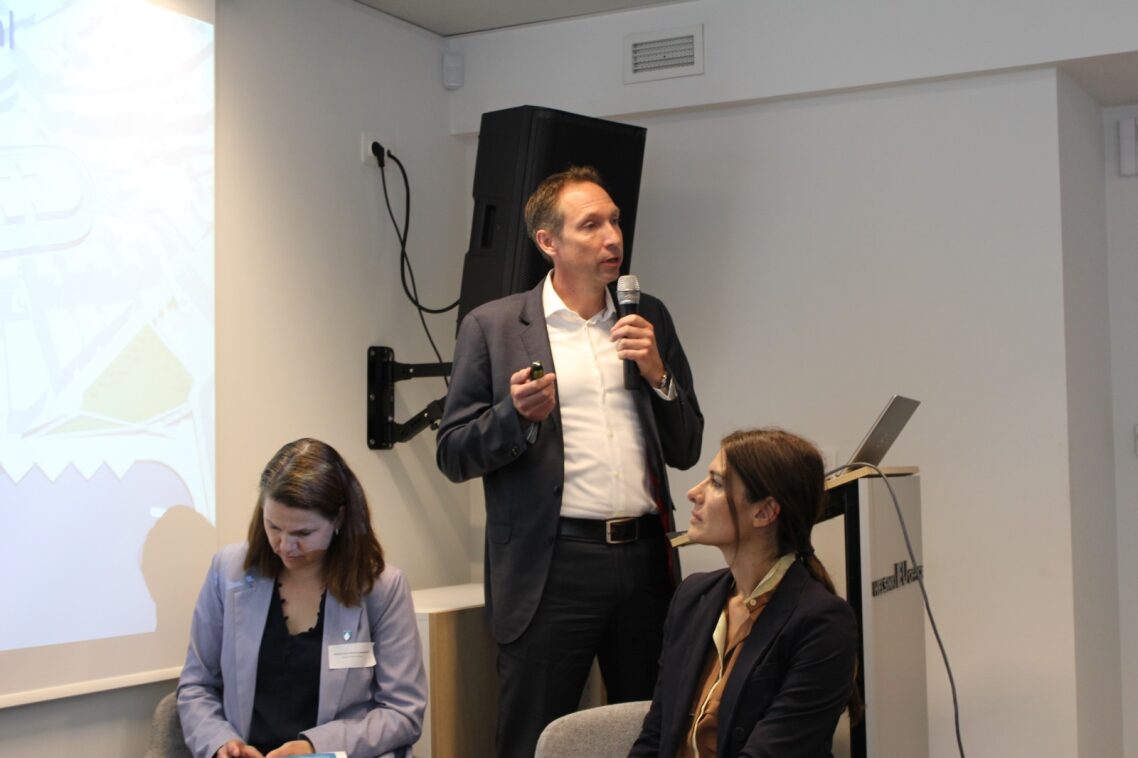 Mr. Peter Svärd, Project Director and Ms. Lisa Jacobsson, Deputy Project Director discussed how to manage rising sea levels and lake water within a city by presenting floodgate project The New Slussen. Securing the drinking water in lake Mälaren and reducing the risk of flooding is the utmost importance due to the increased amount of precipitation caused by climate change. To tackle this, the New Slussen project will include two additional channels that will be able to dewater the lake in the city centre and regulate the water levels to a larger extent. Mr. Svärd and Ms. Jacobsson highlighted that The New Slussen-project has a 100-year perspective, and that the technology is adaptable to future events and will also protect the lake from saltwater intrusion due to rising sea levels Furthermore, the project will help securing the quality of the drinking water for almost 2 million people in the Stockholm region.
Mr. Peter Svärd, Project Director and Ms. Lisa Jacobsson, Deputy Project Director discussed how to manage rising sea levels and lake water within a city by presenting floodgate project The New Slussen. Securing the drinking water in lake Mälaren and reducing the risk of flooding is the utmost importance due to the increased amount of precipitation caused by climate change. To tackle this, the New Slussen project will include two additional channels that will be able to dewater the lake in the city centre and regulate the water levels to a larger extent. Mr. Svärd and Ms. Jacobsson highlighted that The New Slussen-project has a 100-year perspective, and that the technology is adaptable to future events and will also protect the lake from saltwater intrusion due to rising sea levels Furthermore, the project will help securing the quality of the drinking water for almost 2 million people in the Stockholm region.
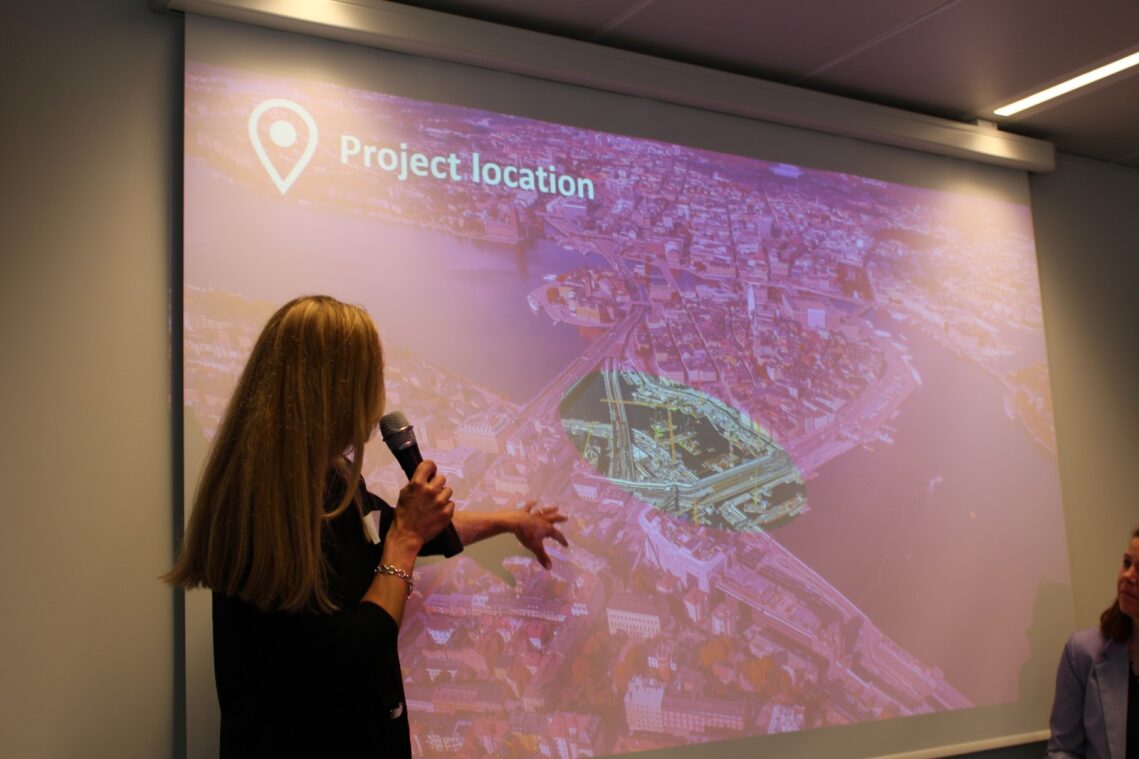 Furthermore, the floodgate is already a central part of the Stockholm inner city, and as part of the project a bus terminal and a new traffic hub will be put in place offering easy and efficient connections. The New Slussen will also provide a large, safe and high-quality area with meeting points such as restaurants, offices, museums and cafes and a new park. The construction started in 2016, and the water area will open on June 6th, 2024.
Furthermore, the floodgate is already a central part of the Stockholm inner city, and as part of the project a bus terminal and a new traffic hub will be put in place offering easy and efficient connections. The New Slussen will also provide a large, safe and high-quality area with meeting points such as restaurants, offices, museums and cafes and a new park. The construction started in 2016, and the water area will open on June 6th, 2024.
Ms. Solveig Schytz, Councilor for planning, cultural heritage, climate and environment from Akershus County, highlighted possible ways to contribute to a clean and healthy Oslo fjord. Ms. Schytz underlined that there has been a big shift in Norwegian politics regarding the Oslo fjord, resulting in a National Action Plan. However, there is a need for regional actors to step up their work as well.
Mr. John Flyvbjerg, Chief Consultant Environment, Capital Region of Denmark, discussed PFAS challenges and solutions from a regional perspective. PFAS in the ground water is an urgent issue, and Denmark has adopted a National Action Plan to respond. Mr. Mr. Flyvbjerg underlined the concern about the amount of PFAS in the ground water.
Ms. Hanna Wesslin, Climate Director, City of Helsinki, discussed how to adapt to the changing climate in Helsinki. Ms. Wesslin argued that the risks related to heavy rainfall is urgent since it is increasing and intensifying. Thus, preparing for heavy rainfall is one of the main focus areas for the city of Helsinki. Other focus areas are preparing for seawater flows, which are also rapidly increasing, and preparing for heat. Ms. Wesslin emphasised that adaptation to the changing climate is local, and the primary adaptation solution is a functional green structure.
Please find the presentations here.
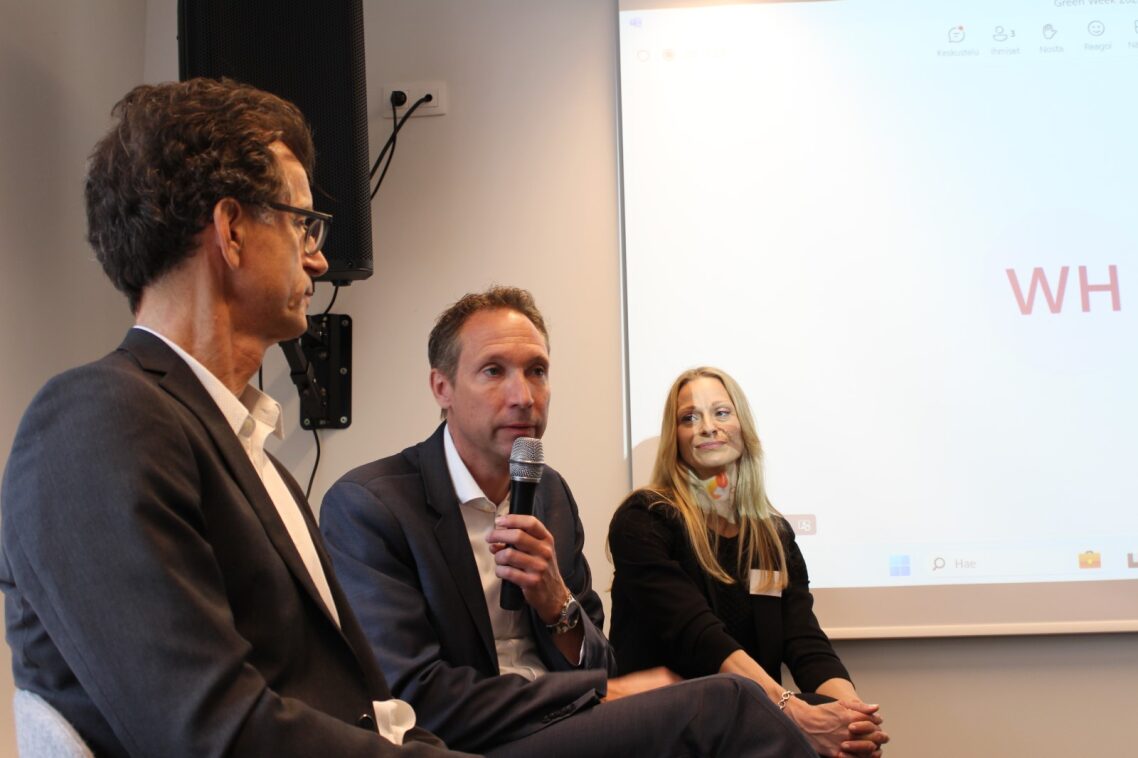
Regional perspectives and EU regulation
During the discussion that followed several speakers highlighted the importance of collaboration between European cities, regions and member states in order to reach our goals. The need for clearer EU regulations and legislatives on water was also voiced. Common challenges identified by the speakers were finances and funding, brain drain and the lack of skilled labour. For instance, Ms. Lisa Jacobsson outlined that while working on the New Slussen project they faced knowledge gaps in e.g. the construction sector. Lastly, Ms. Bartolini addressed that a nature-based solution is vital, as well as the focus on science and technology. It is important to understand how technology can help the green transition and sustainable water management.
Watch the recording of the seminar here.
/Authors: Felicia Simonsson, trainee och Veronica Fransson, trainee at Stockholm Region EU Office
/ Photographs: Oslo Region European Office
/ Editing: Rebecca Timm, Communication Strategist at Stockholm Region EU Office